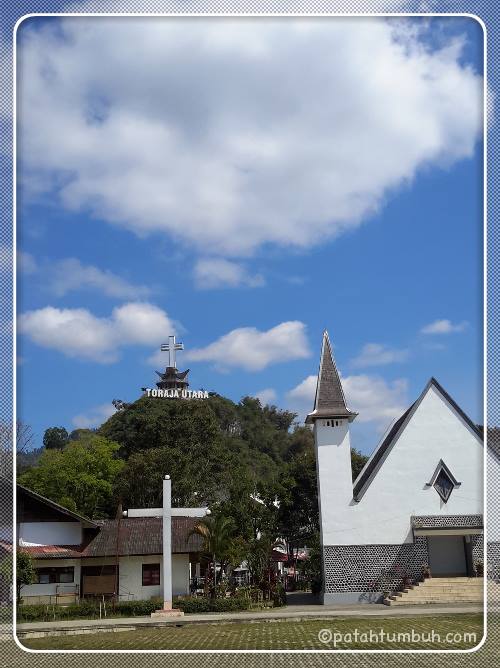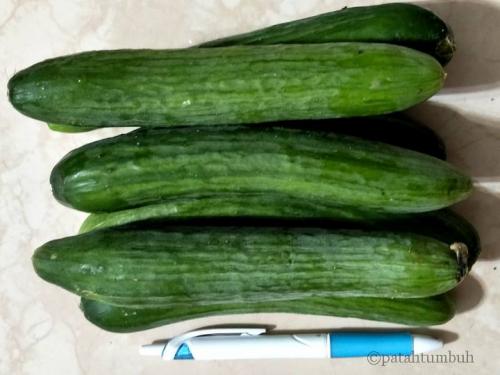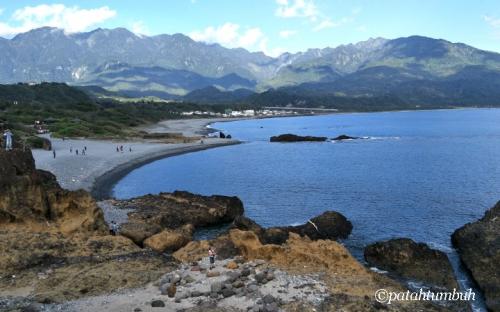To reach Toraja, the most visited town in South Sulawesi, Indonesia; I flew to Makassar from Jakarta and then proceeded by land for approximately nine hours. Makassar - Toraja is about 330 km. If you want to save on accommodations, you better travel this nine hours in the evening, so you arrive at Toraja the next morning. Be sure that there is a funeral ritual on days of your stay so you don’t have to waste time. I stayed in Rantepao, the main city of North Toraja.
Toraja is a beautiful land, full of beautiful people and culture. The way the Torajans treat their deceased family member is extraordinary and precious to witness. The nature offers beautiful landscape extremely worth exploring. If you have time and will, do the trekking, rafting or mountain biking. I am sure the scene, the untouched wilderness, and the uninterrupted serenity will leave you speechless.


A Torajan belongs to both his/her parent’s families. They are the only tribe practice bilateral family line in Indonesia (not either matrilineal nor patrilineal). The social hierarchy determines who does certain parts of rituals, where someone should sit, or which part of meat someone has the right to. One may not marry a girl from the lower strata, but if he marries a girl from higher class, his children will inherit the higher class status from their mother. There were three main social strata : nobles, commoners, and slaves. Slavery was not allowed since more than a century ago, but someone’s status can also change with wealth, which is determined by the number of buffaloes they own.

Along the way we can see buffaloes here and there and if we are lucky, we may bump into the considered-special buffalo like this tedong ballian (a long sideways spreaded horned buffalo) that is very pricey.
The Torajans have two kinds of festivity:
- Rambu Tuka - Means 'ascending smoke', associated with east and life, celebrating happiness, as in weddings, renovated tongkonan (Torajan house) blessing, new tongkonan dedication.
- Rambu Solo - Means 'descending smoke', associated with west and death, mourning or commemorating rituals, as in funerals.
The main purpose of my journey was witnessing the funeral ceremonies. Through the passing time, the ceremonies had changed although not much. I believe, the growing population, beliefs and socio-economy changes are part of the reasons.
Christianity was introduced to the Torajans a century ago. Although most Torajans are now Christian but most still maintain their funeral traditions which include animals sacrificing and other rituals for the deceased

First church in Rantepao with the giant cross on Singki hill at the background, built to commemorate one century of Christianity in Toraja. It is supposed to be a new icon of South Sulawesi but it also stirs many different opinions from the informed and educated.
A Torajan funeral (Rambu Solo) is very pricey and needs long and complicated preparations. When a member of the family died, the deceased is not buried immediately. According to their former beliefs, Aluk To Dolo (means ‘the way of the ancestors’, which has 777 rules), the deceased are not considered dead until they are really buried with a succession of ceremonies. They will be treated like they are sick, not dead. They are spoken to and taken care of, provided with food and drinks, until the family is ready to bury them. At the mean time, the family member might not eat rice, they eat other food as substitutes (such as corn or sweet potato). A white flag is put in front of the house to let others know they are mourning. How long does it take until they are taken to the funeral site depends on many accounts. Sometimes it is two months, but it might take the family up to 20 years to do so.

I had a chance to visit one who died three years ago but not buried yet. Before I left, I put some money in the purse provided by the family at the foot of the casket.
I think I can safely say that the preparations of a funeral ceremony begins as early as one was born. In Toraja, every body owes somebody. The bond between generations are very tight. The deceased are highly respected. The debt might not be one’s own, it might be their father’s, grandfather’s, or even great grandfather’s that hadn’t been paid in their life time. Sooner or later one has to pay someone or organize a funeral ceremony for their family. Torajan have to start saving money early for these costly events. Rambu Solo is going to bankrupt modern families that are not rich enough, especially those who have blue blood flow in their arteries.

Buffaloes and pigs brought in by guests of a funeral ceremony are documented as gift, an old debt pay off, or a loan which has to be paid in future. This continues from generation to generation. If someone refuses or can not pay, he will be the laughing stock and looked down by the society.










Add new comment